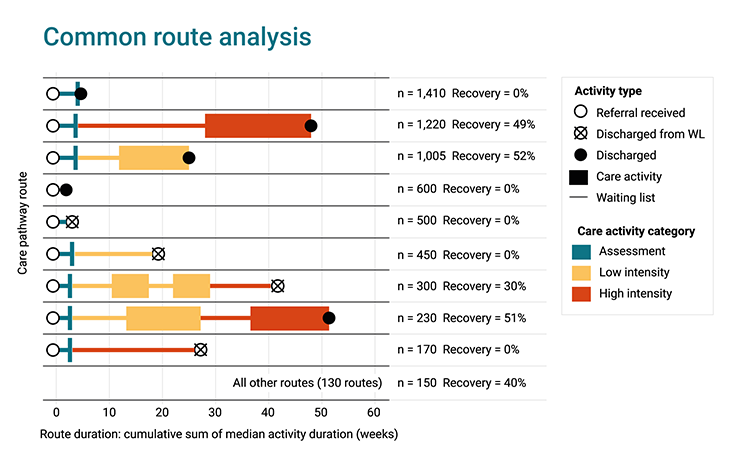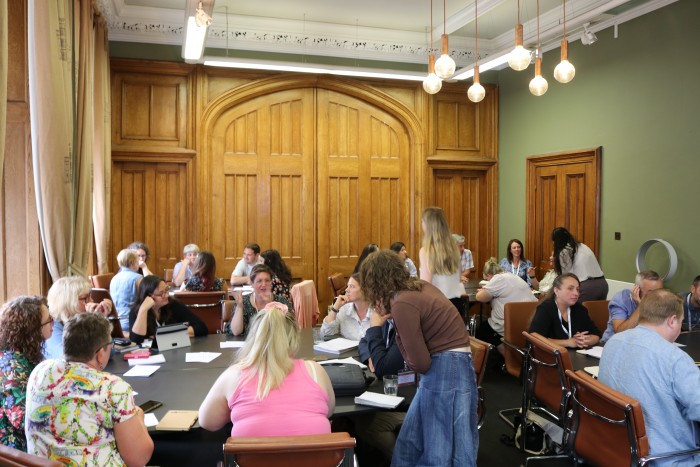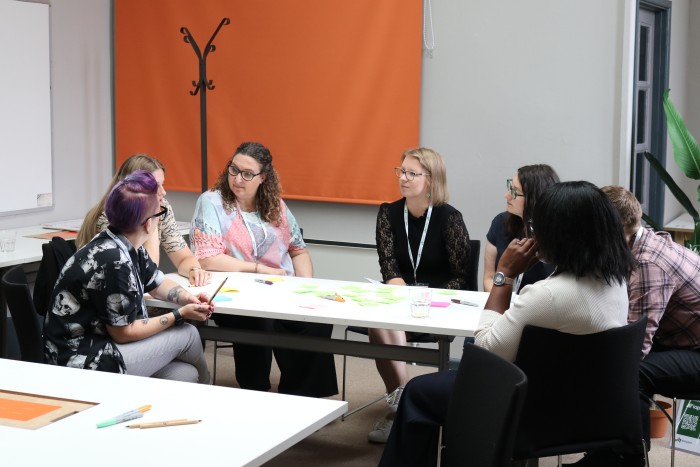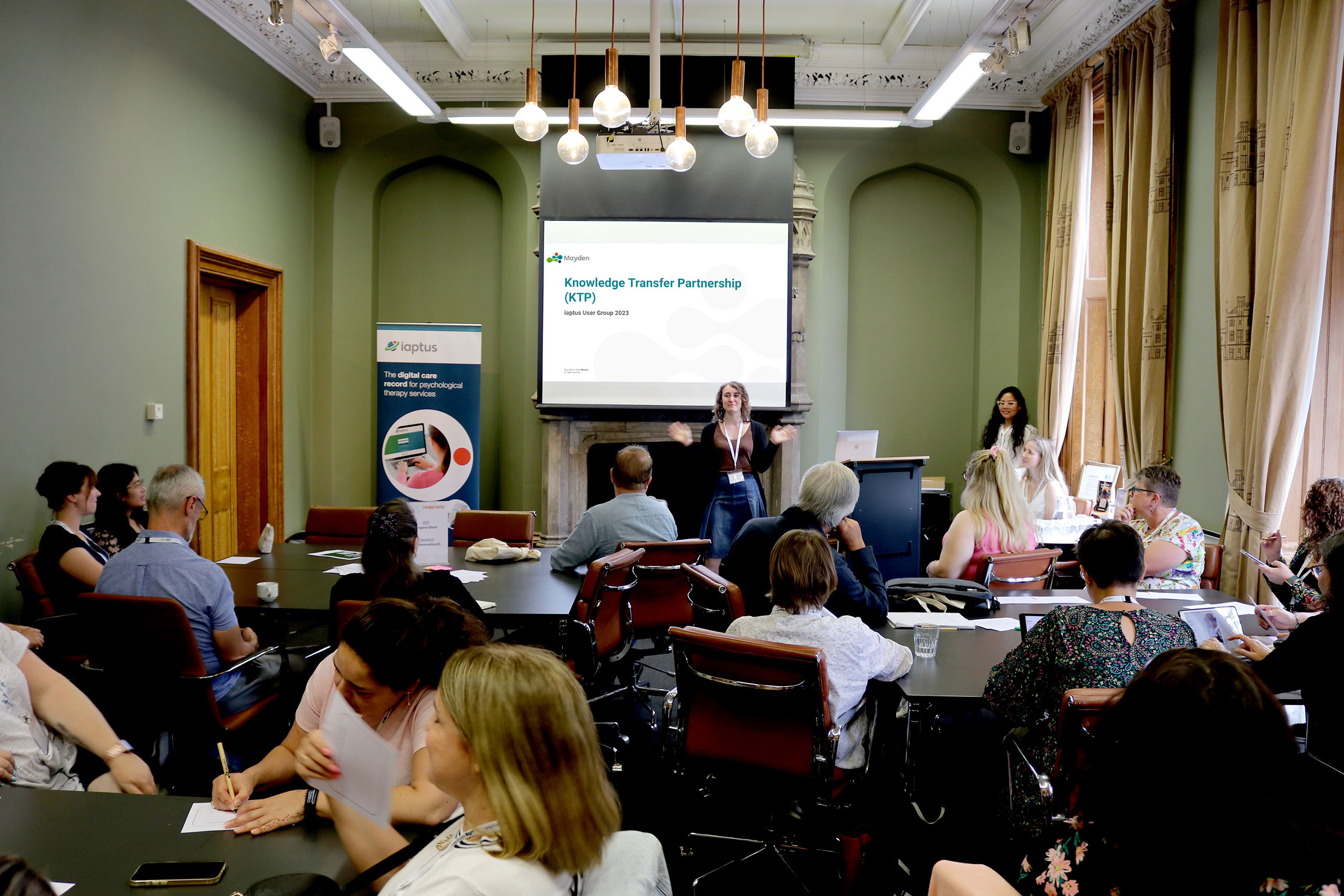Mayden and the University of Bath are partnering on a Knowledge Transfer Partnership (KTP) project to produce analytical tools to help improve NHS Talking Therapies service capacity by analysing and modelling usage of care pathways.
We’re looking for providers of mental health services that are interested in working with us on this research, for the opportunity to shape and demo the analytical tools that are developed.
What is a Knowledge Transfer Partnership (KTP)?
Knowledge Transfer Partnership (KTP) is a UK-wide programme funded by Innovate UK, helping businesses improve their competitiveness and productivity through the better use of knowledge, technology and skills. A KTP facilitates the transfer of knowledge between a business and a university. This KTP in particular focuses on the transfer of skills and knowledge required for the quantitative analysis and modelling of healthcare processes.
Knowledge Transfer Partnership & NHS Talking Therapies Care Pathways
The KTP project will summarise and model Talking Therapies care pathways and investigate how patient routes through care pathways affect patient dropout and recovery. Our project will achieve this through three phases of work:
Phase 1
Analysis of historic service performance, patient wait times, dropout rates and identification of the most common patient trajectories through the care pathway.
Phase 2
Statistical analysis to understand how service delivery impacts patients and their outcomes.
Phase 3
Development of digital pathway models of demand and capacity that use historic service performance to predict future capacity and support decision-making.

We envisage the major impacts of this project as improved access to psychological therapy services and better utilisation of Talking Therapies resources, leading to reduced wait times, higher recovery rates and reduced patient dropout.
Innovative technologies
This research project will use a number of different technologies to achieve its aims.
- To analyse historic service performance, we will use process mining, a way of analysing and visualising healthcare processes using historical data about how those processes are executed in practice to generate information about process usage.
- To evaluate the impact of care pathway attributes on patient outcomes and experience such as engagement with therapy or recovery, we will use traditional statistical and machine learning techniques.
- To model patient flows through care pathways, we will use simulation modelling, which involves generating a simulated version of the care pathway, which can be used to test “what-if” scenarios.
User feedback from the iaptus User Group 2023

We were so pleased to meet so many iaptus customers at the iaptus User Group last month at the Engine Shed in Bristol. In one of the workshops, our Data Science Team spoke to mental health services to explain some of the objectives of our KTP research and get their feedback on our plans.
Some highlights from the Knowledge Transfer Partnership workshop:
- Users felt that tools for analysing operational and clinical performance across the care pathway would be useful for understanding changes in performance, supporting performance improvements and planning capacity levels.
- On the whole, many users were interested in the potential of simulating a dynamic model of their care pathway to support decision-making, particularly for being able to compare the impact of adding therapist resource at different points in the pathway.
- When discussing capacity planning in more detail, we identified some challenges faced by Talking Therapies services, which included understanding the current capacity level, understanding how to manage capacity levels to meet targets and planning capacity across different treatments.

Another popular area of research was the exploration of relationships between patient or system attributes and outcomes such as patient engagement or recovery. In previous research, Mayden identified service-level process characteristics that were associated with patient engagement. The Knowledge Transfer Partnership research aims to build upon these findings by incorporating additional process information into the analysis.
We’d love to work with you:
We’ve recently received Health Research Authority (HRA) approval for the next steps of this project and are really looking forward to moving forward with this project. We’re looking for NHS and private providers of adult mental health services that are interested in working with us on this research, helping us to shape and demo new dashboards and reporting features, or just to hear more about our plans for the analysis.
If you would like to find out more about the Knowledge Transfer Partnership project, please contact us at data.science@mayden.co.uk mentioning our Care Pathway KTP.


